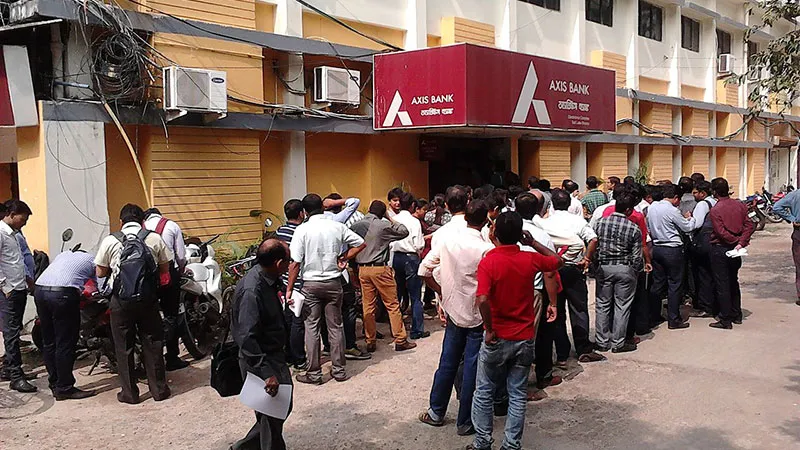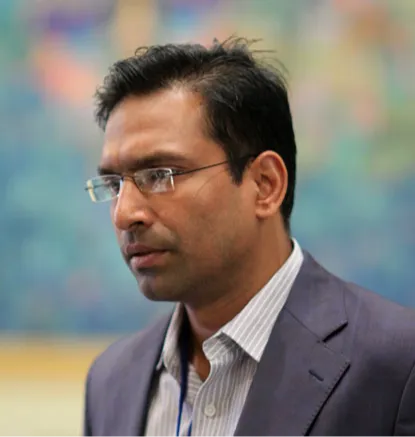-
CENTRES
Progammes & Centres
Location
Prime Minister Narendra Modi’s masterstroke through demonstisation aiming to choke the cash channels of black money seems to have many positive consequences

Prime Minister Narendra Modi’s masterstroke aiming to choke the cash channels of black money seems to have many positive consequences. The government claims that demonetisation will dry off terror funds and underground Naxal activities. There are also ‘loud’ claims that the scrapping of Rs 500 and 1000 banknotes will clean up the shadowy and corrupt party finance and election funds. Analysts covering political funding believe that since elections in India are all about cash, the denomination drive would have a sobering effect on cash flow. The strongest endorsement for this claim has come from none else than the country’s Finance Minister, Mr. Arun Jaitley. To quote him, “demonetisation will have a political effect, that political funding of all parties, including BJP, will now become fully transparent...” With the Prime Minister urging political opposition to debate the plausibility of arranging state funding for political parties, the oft-neglected but very critical public policy issue concerning the health of country’s democracy is finally on the centre stage of public debate.
Will demonetisation help choke up black money channels to political parties and candidates? Would it address the core structure of an opaque campaign finance system that distorts democracy? In the near term, demonetisation of Rs. 500 and 1000 will have a ripple effect on election finance (not really on party finance). The five States that are set to enter Assembly elections early next year are most likely to face serious funds crunch as higher denomination banknotes, which now value up to 86% of total currency, will be in short supply for several months to come. Parties and candidates will be forced to make mad scrambles for cash to organise decent campaigns, pay vendors and party workers. It is well documented (albeit anecdotally) that an humongous amount of money (to the tune of $ 6 billion in the last General Elections), mostly in cash, is spent in running elections in India. The Election Commission (EC)’s seizure of Rs 300 crore cash from Tamil Nadu in the 2014 Assembly elections clearly indicates that cash is the king in Indian elections. So, there is little doubt that the abolition of old high denomination notes will impact the flow of black money or unaccounted money in the upcoming elections.
However, in the longer term, demonetisation is not likely to make any dent in altering the existing campaign finance edifice that survives on illegal or black money. A close glance at campaign finance literatures suggests that in all democracies, political parties have uncanny abilities to find a way-out to beat the systems and regulations. Given their influence over economic and business sectors and the kind of nexus that exist between business and politics (with government retaining maximum control over administrative and regulatory decisions), parties would be able to extract favours in kind and other mediums as well. For instance, the candidates can beat the cap by showing the expenses on bill boards, campaign materials and payment to volunteers of candidates as being paid by business groups and supporters. In short, there are numerous ways in which parties and candidates would be able to beat the cash crunch and run the elections the way they like. Importantly, the availability of freshly minted Rs. 500 and 2000 notes will again restore cash flow to the coffers of political parties and candidates. In short, demonetisation will have only very marginal impact on the black money flow in the near term.
To free the democratic system from its dependency on black money or unaccounted money, India’s ossified campaign finance laws and opaque institutional architecture promoting transparency and accountability need a major overhaul. As a major democracy, India’s campaign finance laws are woefully short of meeting the present requirements of transparency and accountability. Nor does the country have enabling institutions to regulate and enforce rules of the game. While it is certainly a tall order to transform the campaign finance system, the government of the day can take at least a few quick steps to enlarge the fight against corruption and black money. Arguably, an opaque and unaccountable campaign finance system is the biggest source of black money.
For the beginning, the Modi government can scrap the Section 13 A (Proviso B) of the Income Tax Act, 1961. This Section, which was inserted in 2003 (as a sort of compromise to bring up The Election and Other Related Laws Bill in 2003), perversely allows political parties to raise any amount of funds below Rs. 20,000 without sourcing the amount. It is through this window that more than 75% of funds are generated by most political parties. Nearly all illegal money is funnelled through this loophole. Legally speaking, all political donations should have its source details and must be available in public domains for information and scrutiny by rivals and watchdogs.
Further, the existing cap on candidates’ election expenditure needs an urgent review. An arbitrary cap with no sound estimation of costs of campaign is the single biggest reason for political funds going underground as candidates resort to undeclared spending. In fact, as acknowledged by former Prime Minister A.B. Vajpayee, “every legislator starts his career with the lie of false election return he files”. Candidates should be allowed to spend any amount in elections provided they are willing to disclose the sources of their expenditure.
Beyond these starters, the Modi government also needs to embrace a series of structural reforms to break the unholy nexus between business and politics. There are lots of literature (even though anecdotally) pointing to a quid pro quo business-politics relationship that has grown enormously in the era of economic liberalisation. From the infamous ‘briefcase’ politics, which saw select business houses generously donating to individual politicians for quid pro quo to the disturbing trends of bankrolling an entire political campaign (e.g., Reddy Brothers in the State of Karnataka), business funding of politics has emerged as the single biggest challenge confronting Indian democracy today. As graphically captured in the Radia tape and series of high profile corruption scandals, notably 2G and Coalgate, everything from spectrum to key ministry portfolios were on sale for a right price. No wonder, a mammoth 87% of the funds, generated by political parties from known sources, come from the private businesses. While the recent amendments in the Companies Act 2013, allowing private companies to make political donations in a transparent manner and get tax benefits, is a positive move, the executive’s excessive discretionary powers and regulatory arbitrage on economic issues continue to encourage companies to pursue the “under-the-table” deals with major political parties. Is the government ready to cede its excessive administrative and regulatory powers over economic sectors?
The big ticket campaign finance reform that can attack Indian democracy’s money problem is the public funding of political activities (not restricted to campaigns). While Prime Minister Modi needs to be credited for calling upon political parties to debate this critical electoral reform, state funding of political parties is an extremely complicated policy field. In the Indrajit Gupta Committee report of 1998, there are various arguments that have been put forward in favour of state funding, viz; that it would provide level playing field for political parties, especially the ones with little financial base; reduce dependency on illicit/criminal money during elections; increase compliance on expenditure and enhance transparency. While state funding has many pros, it has many problems also, especially with regard to growing complacency among political parties, possible disconnect between donors (members) and parties, issues of extending such support to independent and smaller parties, proliferation of parties, etc. Yet, this is a big idea worth exploring, though, as rightly pointed out by Chief Election Commissioner Nasim Zaidi, state funding must not be considered unless it is accompanied by major reforms in inner party democracy, de-criminalisation of politics, robust disclosure laws and a strict legal regime for the enforcement of electoral laws.
Finally, to ensure electoral laws are effectively adhered to, India needs to either empower the Election Commission in a fundamental manner or establish an independent regulator in the manner many advanced democracies have done. In the present form, the Election Commission of India has neither legal teeth nor capacity to enforce campaign finance laws. This is best exemplified by the inability to disqualify a single candidate caught up in the fraudulent electoral practices, including violation of expenditure restrictions in the recent times.
Even for petty issues of fund misappropriation or non-submission of expenditure account by political parties, the EC has to rush to the judiciary. Similarly, though 29 out of the 45 recognised political parties failed to submit their donation report to it till the deadline of November 30, 2014, the EC did nothing except issuing further reminders. That a constitutionally empowered body approaching the Supreme Court for every small issue with regard to enforcement of Representation of People Act indicates its present capacity and motivation to check campaign finance violations. Therefore, India urgently needs a Federal Election Commission – an agency exclusively tasked to verify disclosures of expenditures, penalise defaulters and track expenditures by political parties.
Now, the Modi government has a rare opportunity to buck the past trends and cleanse the Augean stables of political parties by taking some radical steps that can enhance the impact of demonetisation. If a government that has the courage to take such a bold and politically riskier measure as demonetisation, cleaning up campaign finance mess would be even easier. The most symbolic demonstration about its seriousness can be taking forward the Central Information Commission’s 2012 ruling on bringing political parties under the ambit of the Right to Information Act. This can be a real game changer to fight corruption and black money that have badly afflicted country’s body polity.
For an exhaustive illumination of corporate funding of elections, see ORF Issue Brief ‘Corporate Funding of Elections: The Strengths and Flaws’ (by Samya Chatterjee and Niranjan Sahoo), https://www.orfonline.org/wp-content/uploads/2014/03/IssueBrief_69.pdf
The views expressed above belong to the author(s). ORF research and analyses now available on Telegram! Click here to access our curated content — blogs, longforms and interviews.

Niranjan Sahoo, PhD, is a Senior Fellow with ORF’s Governance and Politics Initiative. With years of expertise in governance and public policy, he now anchors ...
Read More +